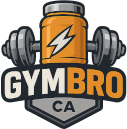The Underrated Hero: Why Copper is the Hidden Game-Changer for Your Health and Well-being
Imagine a single element that’s as crucial to powering our homes as it is to fueling your body's most vital functions. Sounds incredible, doesn’t it? This isn’t science fiction; it’s the transformative power of copper—the unsung hero in both your fitness journey and overall health.
While commonly lauded for its remarkable conductivity and durability in industry, copper's true prowess lies beneath the surface. Essential for iron metabolism, nervous system functionality, and connective tissue formation, copper also plays a powerful role in cardiovascular health and immune system support. Yet, astonishingly, its health benefits fly under the radar for many.
Despite occasional concerns over toxicity, including the debated impacts of copper IUDs, research underscores the rarity of such issues. The reality is that a deficiency in copper could be the real danger, potentially leading to anemia and other severe health conditions.
You might be second-guessing the vital role this metal plays, but don't worry—we’re about to unravel the layers of misinformation. Ready to learn how copper might just be the key missing link in your health regimen? Let’s dive into the transformative science behind copper and discover what makes it a must-have for a healthy life!
Health Benefits of Copper
Copper is a trace mineral that holds significant importance in numerous enzymatic and biological processes within the human body. It's essential for the healthy functioning of various systems, including cardiovascular, nervous, and immune systems.
Key Health Benefits
- Aids in Iron Metabolism
Copper is vital for the efficient absorption and transport of iron, contributing to the formation of red blood cells. Adequate copper levels help combat anemia and ensure that oxygen is transported efficiently throughout the body.
- Supports Nervous System Function
This mineral is crucial for maintaining healthy nerve cells and the proper functioning of neurotransmitters. Copper supports the myelination process, which protects nerve fibers, thereby helping to prevent neurological disorders.
- Essential for Connective Tissue Formation
By participating in the synthesis of collagen and elastin, copper is key in forming connective tissues such as skin, bones, and cartilage. These contributions ensure structural integrity and facilitate repair processes.
- Contributes to Cardiovascular Health
Copper is fundamental in forming new blood vessels and supporting heart health. Maintaining adequate copper levels can help fend off certain cardiovascular diseases.
- Boosts Immune System
Copper is integral to numerous enzymatic processes that support immune function. It assists in producing and regulating immune cells, strengthening the body's ability to combat illness.
To effectively incorporate copper into your diet and harness these health benefits, consider using supplements. For those seeking an effective way to maintain copper levels, Pure Labs Vitamins Copper Glycinate 1mg capsules support your body's natural processes, including collagen production and immune function. Embrace these health benefits and enhance your overall well-being by ensuring sufficient copper intake.
Dietary Sources of Copper
Understanding where to find natural sources of copper is key to supporting your overall health. Copper is a crucial trace mineral necessary for many bodily processes, such as forming red blood cells and maintaining healthy nerve and immune systems.
Natural Sources of Copper
- Oysters
Oysters are among the richest natural sources of copper. They provide a hefty dose of this mineral, along with essential nutrients like zinc and vitamin B12, supporting your body's overall well-being.
- Liver
Beef liver is a powerhouse of copper. Packed with iron, vitamin A, and other nutrients, it plays an essential role in metabolism and energy production, aiding in the body's overall function.
- Nuts and Seeds
Cashews and sunflower seeds are excellent plant-based options for copper intake. These nutrient-dense foods offer healthy fats, protein, and fiber, which promote cardiovascular health and assist digestion.
- Dark Chocolate
Indulging in dark chocolate not only satisfies your sweet tooth but also boosts your copper intake. It offers antioxidants and trace minerals, contributing to cardiovascular health and providing an energy lift.
- Shellfish
Other shellfish, such as lobster and crab, join oysters in offering a rich copper source. These seafood options supply lean protein and crucial nutrients beneficial for muscle development and repair.
Challenges of Meeting Copper Needs Through Diet
While these foods are copper-rich, many people struggle to consistently incorporate them into daily meals due to factors like dietary restrictions, availability, or taste preferences. This can make achieving recommended copper levels challenging purely through diet.
For those aiming to bridge this nutritional gap, consider enhancing your regimen with copper supplements. Support your body's natural processes, including collagen production and immune function, with Pure Labs Vitamins Copper Glycinate 1mg capsules, ensuring you meet your copper needs effortlessly.
Daily Intake for Copper
Copper is an essential mineral crucial for maintaining the body's optimal function. It is involved in essential physiological processes including iron metabolism, nervous system health, and connective tissue development. Without adequate copper, you might face issues like anemia, immune system weaknesses, and cardiovascular difficulties. Thus, regular intake is crucial.
Recommended Daily Intake
- Infants (0-6 months): 200 mcg per day
- Infants (7-12 months): 220 mcg per day
- Children (1-3 years): 340 mcg per day
- Children (4-8 years): 440 mcg per day
- Children (9-13 years): 700 mcg per day
- Adolescents (14-18 years): 890 mcg per day
- Adults (19 years and older): 900 mcg per day
- Pregnant women: 1,000 mcg per day
- Breastfeeding women: 1,300 mcg per day
These guidelines, set by the National Institutes of Health (NIH), outline the essential dietary reference intakes for copper. They help ensure you’re meeting your body's needs effectively.
Meeting Your Daily Copper Needs
Incorporating copper-rich foods such as shellfish, seeds, nuts, and whole grains into your meals is key to achieving the required intake. Copper supports vital functions, facilitating nerve electrical conduction and red blood cell synthesis. A consistent and adequate intake is your safeguard against deficiency and a pathway to optimal health. For those seeking an additional source to ensure they meet their nutritional requirements, you can consider supplements like Pure Labs Vitamins Copper Glycinate 1mg capsules to support your body's natural processes, including collagen production and immune function, effectively.
Next, we will explore the symptoms of copper deficiency and how to avoid it.
Deficiency of Copper
Copper is a vital trace mineral integral to numerous physiological processes, including energy production, iron metabolism, and the development of connective tissue. Its deficiency poses significant risks to your health, potentially disrupting your body's normal functions in unexpected and concerning ways.
Deficiency Symptoms and Consequences
- Anemia
Copper is essential for iron absorption and the creation of hemoglobin in red blood cells. Without adequate copper, you may develop microcytic, hypochromic anemia, recognized by smaller, paler red blood cells. This condition can cause you to feel unusually fatigued, weak, and short of breath—daily activities become increasingly challenging over time.
- Immune Dysfunction
A well-functioning immune system relies on copper. If your body lacks this crucial mineral, you may experience a compromised immune response, leaving you vulnerable to frequent infections and affecting antibody production.
- Neurological Disturbances
Optimal nerve function depends on sufficient copper levels. A deficiency might manifest as concerning neurological symptoms like numbness or tingling. In severe cases, it can cause difficulty in walking due to nerve function degeneration, potentially impacting your daily life severely.
- Bone and Connective Tissue Disorders
Copper's role in forming collagen and elastin means its absence can lead to osteoporosis or other connective tissue disorders. These may result in joint pain and reduced elasticity of your connective tissues, hindering mobility and quality of life.
Preventing Copper Deficiency
Avoid the pitfalls of copper deficiency by ensuring your diet includes foods rich in copper, such as shellfish, seeds, nuts, organ meats, and dark chocolate. For those concerned about maintaining optimum copper levels, it might be wise to consider supplementing. Support your body's natural processes, including collagen production and immune function, with Pure Labs Vitamins Copper Glycinate 1mg capsules!
Let's explore some of the common misconceptions and practical concerns related to copper with the following frequently asked questions.
Conclusion
As you consider your fitness and health journey, remember that sometimes the smallest players make the biggest impact. Copper, a seemingly humble trace mineral, silently orchestrates numerous vital processes throughout your body. From maintaining robust heart health and facilitating iron metabolism to keeping your nervous system humming smoothly, copper is indeed a hidden gem in your well-being arsenal.
But here’s the big question: Are you giving copper the attention it deserves in your daily diet? Perhaps it’s time to pause and evaluate how well you’re meeting your nutritional needs. Recognizing copper’s impact could not just enhance your workouts or immunity, but elevate your overall health to a new level.
Open up the conversation within your community. Engage your gym buddies or discuss with family—how do they incorporate essential elements like copper into their diets? Sharing insights might spark new ideas and provide support in achieving better health together.
Moreover, don't let this newfound knowledge sit idle. Whether it’s including copper-rich foods more consistently or exploring quality supplements, take actionable steps to close the gap in your diet. It’s a choice that promises more than just improved health; it's about building a stronger foundation for the future you envision.
Change begins with awareness, and you've already taken a significant step by educating yourself on the crucial role of copper. Now, it’s your move—how will you redefine your health journey starting today? Let’s hear your strategies or questions below, and keep the conversation vibrant. After all, thriving on knowledge and collaboration is the best motivator we have.

